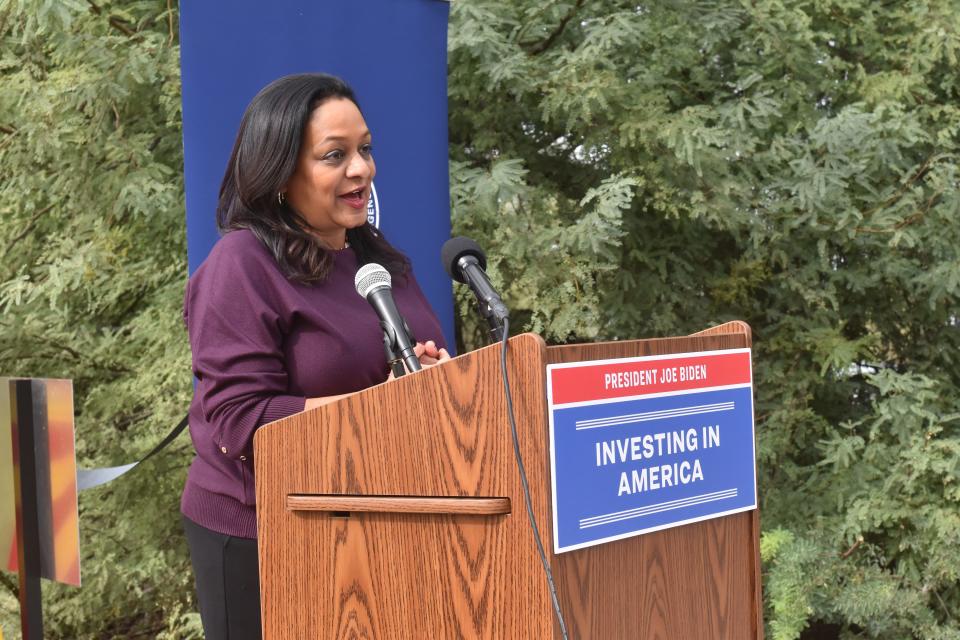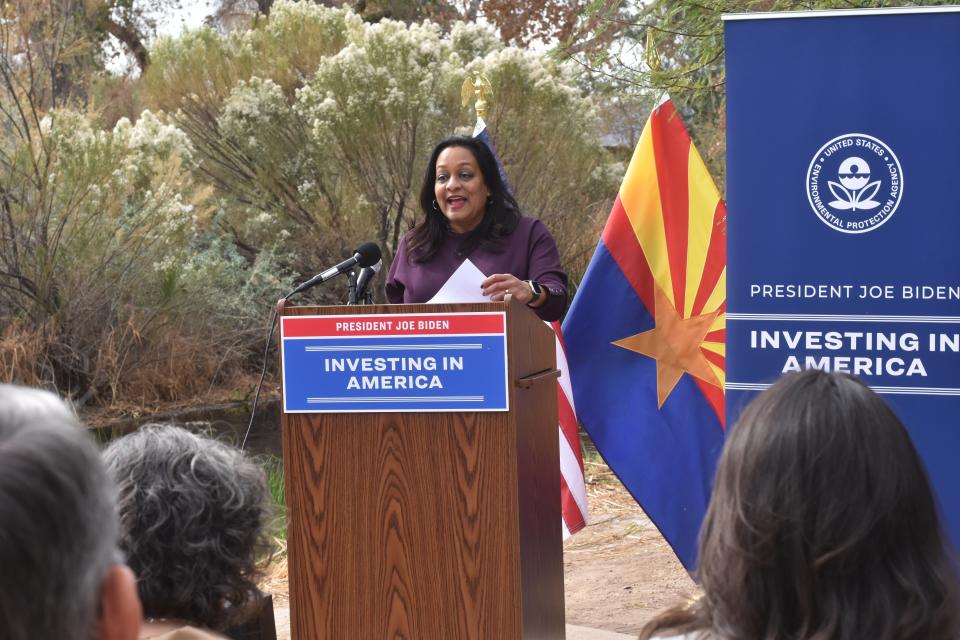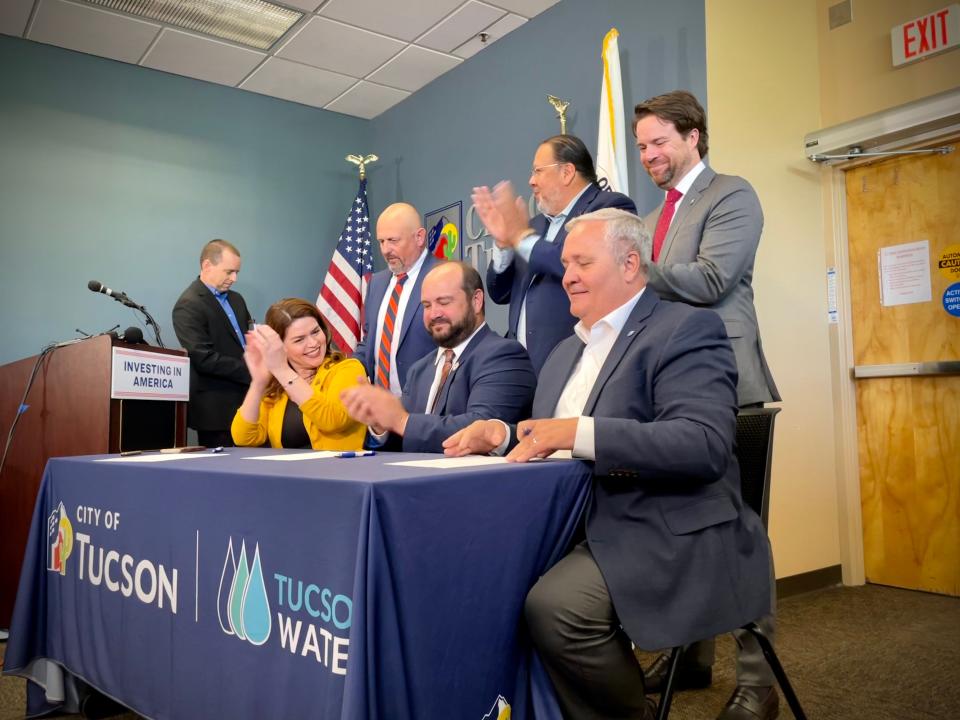The EPA is sending Tucson $30 million for PFAS treatment. Here's what that money buys
The Environmental Protection Agency on Thursday announced $30 million in funding for Tucson and Marana to treat the hazardous chemicals in the area’s drinking water supply.
Per- and polyfluoroalkyl substances, also known as PFAS, are chemicals that have been used since the 1940s in a wide range of industries and products — from fire retardant and popcorn bags to personal care items and clothing — that can now be found globally in water. PFAS are considered hazardous substances that can cause severe health issues with long-term exposure, even in low traces, according to mounting research.
“With this funding, Tucson Water will ensure that customers don’t have to worry if PFAS are in their water, as well as other emerging contaminants,” said Radhika Fox, assistant administrator for water with the U.S. Environmental Protection Agency.

Tucson Water will use the funding to build an advanced treatment plant, allowing the utility to access 28 wells in northeast Tucson and southern Marana that had previously been shut off because of PFAS contamination. Treating the water from those wells will allow Tucson Water to recover 3.7 million gallons a day of potable drinking water, said John Kmiec, the director of Tucson Water.
“This is our primary supply. This is our backbone is the aquifer of Tucson in the Tucson Basin,” Kmiec said. He added that while Tucson also receives water from the Colorado River, it's converted into groundwater for future use.
Funding comes from the Biden administration’s Infrastructure Investment and Jobs Act.
How is PFAS contamination being addressed?
According to the Arizona Department of Environmental Quality, Tucson Water has millions of dollars to address PFAS contamination. The funding fuels projects seeking to test all drinking water sources, turn off contaminated wells, drill new ones in clean areas, and remove PFAS at the Tucson Airport Remediation Project, among other things.
The federal government has invested $50 billion in wastewater, drinking water, and stormwater infrastructure, according to a city of Tucson press release.

Earlier this year, the Environmental Protection Agency established broader reporting requirements for the use and disposal of PFAS. In March, the agency proposed limits for six kinds of PFAS in drinking water.
Federal regulators expect a final rule on the limits by the end of the year at the earliest. After a rule is approved, water systems have three years to be in compliance.
The state has also taken steps to address contaminants in drinking water. In January, the Arizona Department of Environmental Quality initiated a statewide effort to sample over 1,200 public water systems across the state for 29 different kinds of PFAS.
How has Tucson been a model for addressing PFAS?
Fox, the EPA official, said Tucson Water’s masterplan was a “model for the nation.”
The plan developed in 2020 addresses Tucson’s strategies for its water resource management amid drought and climate change.
Fox said it was “so impressive how you all are centering equity and environmental justice as you develop that plan and how you brought everyone together.”
She said the federal agency looks to what Tucson is doing to help other water-scarce communities.

Kmiec, Tucson Water's director, said PFAS are largely unregulated. But he noted Tucson has been testing water for PFAS since 2009, and is investing in new technology to look for emerging contaminants.
According to Tucson Water, PFAS are present in specific areas in Tucson and do not occur in the majority of the city’s groundwater supply.
Kmiec said his agency has detected two types of PFAS at wells in several areas including northwest Tucson, in the vicinity of Davis-Monthan Air Force Base, and others. Tucson Water also tested its Clearwater facilities at multiple points, finding no detectable concentrations of PFAS in that supply, which provides about 80% of Tucson’s overall potable water supply.
Reach the reporter at sarah.lapidus@gannett.com.
The Republic’s coverage of southern Arizona is funded, in part, with a grant from Report for America. Support Arizona news coverage with a tax-deductible donation at supportjournalism.azcentral.com.
This article originally appeared on Arizona Republic: EPA announces $30M grant for PFAS treatment in Tucson

